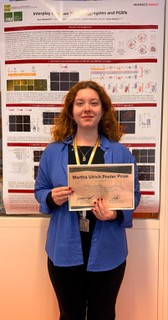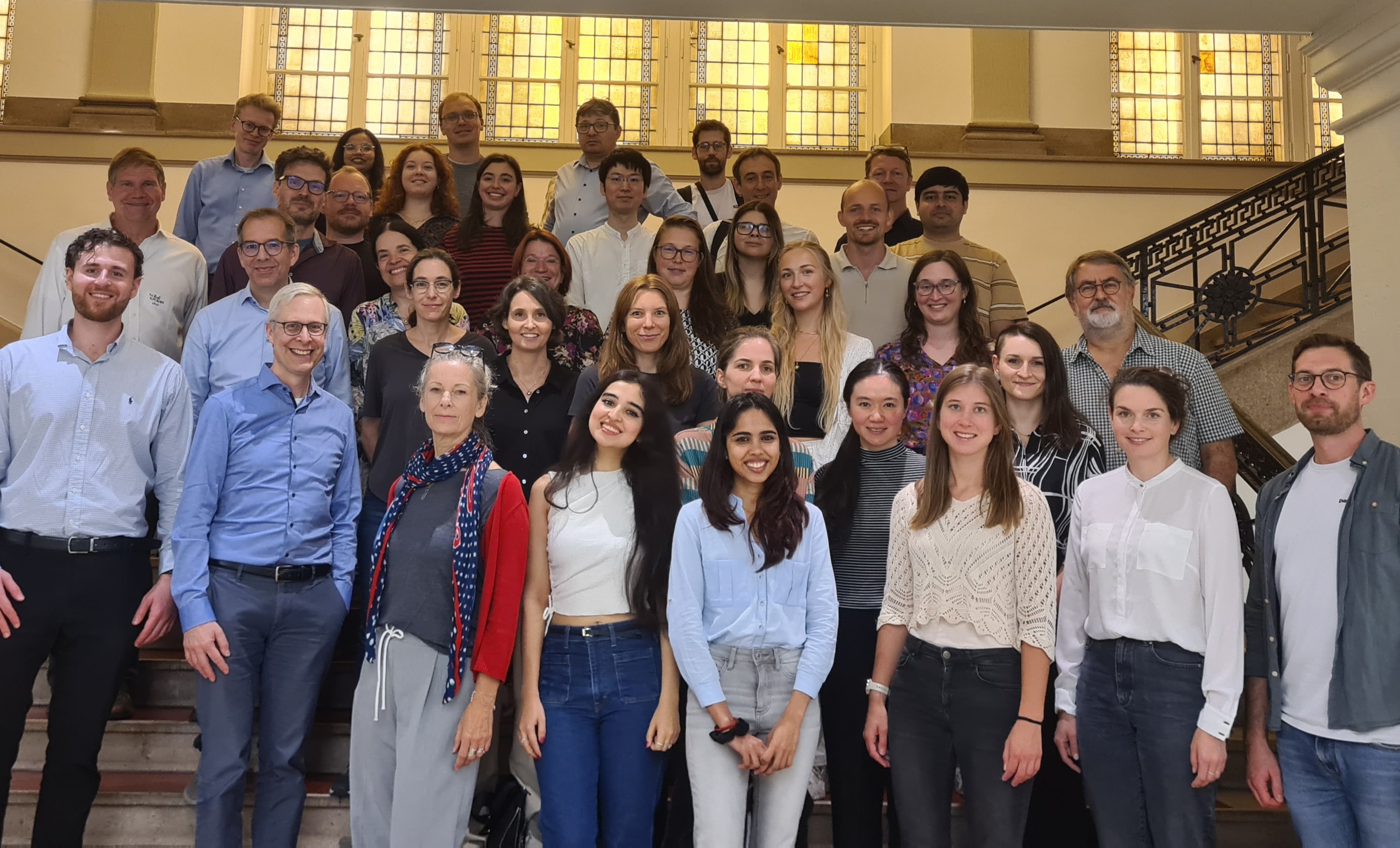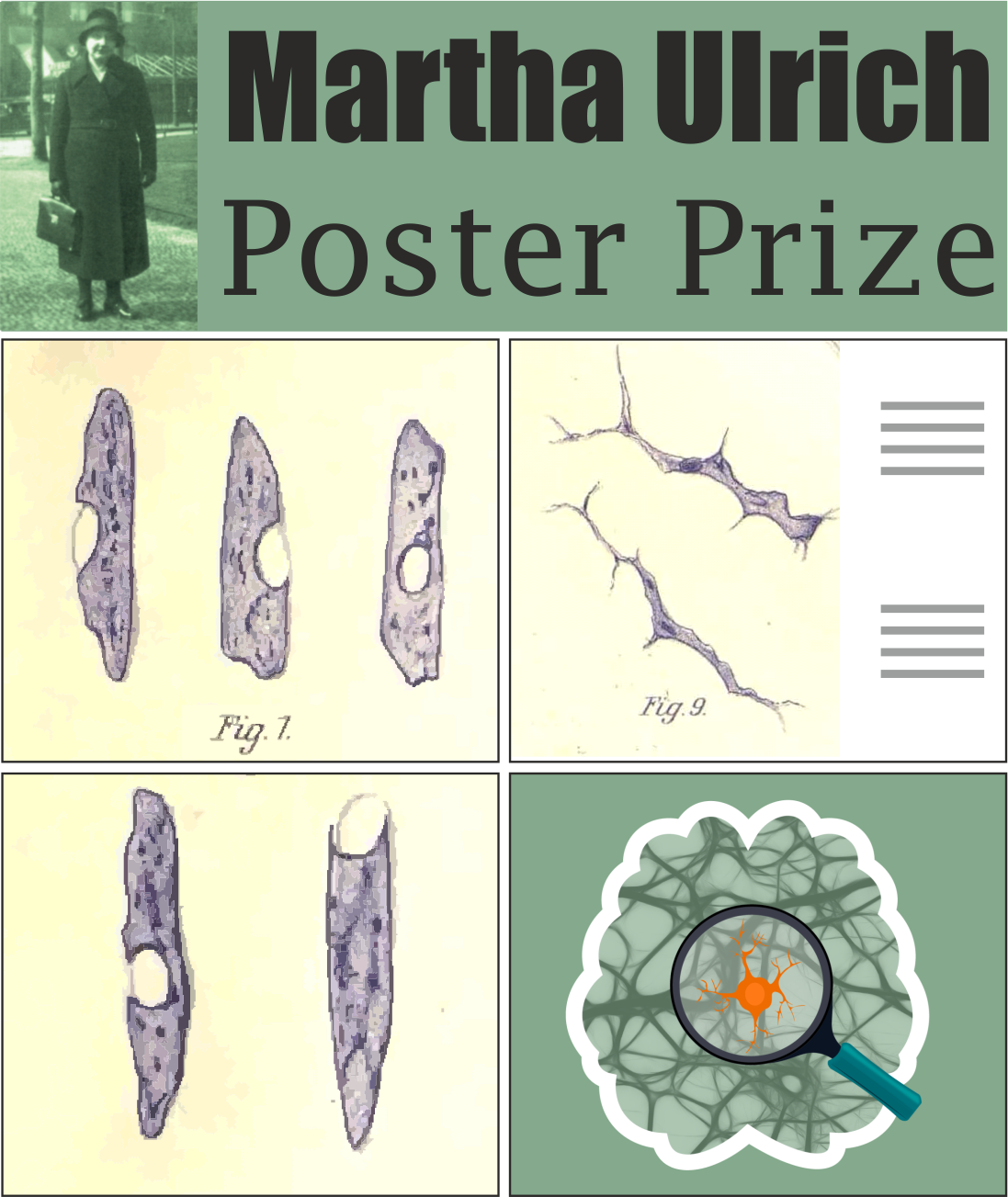News
Martha Ulrich Poster Prize 2025
22.11.2025. The Martha Ulrich Poster Prize is awarded annually by the SPP2395 to PhD students or young postdocs and is dedicated to the first woman to publish on glial cells (Martha Ulrich, Monats f Psych und Neurol 28 (1910): “Beiträge zur Kenntnis der Stäbchenzellen im Zentralnervensystem”).
This year’s winners were selected in a poster competition during the Young Investigator Symposium 2025 in Munich. First place went to Buse Özbaykent from (Jovica Ninkovic’s Lab for her poster on the interplay between TDP43 and PGRN. Second place went to Irene Santisteban (Schäfer Lab Munich), and the third place was shared by Danilo Prtvar (Tahirovic Lab Munich) and Zoe Fusilier (Merkler Lab Geneve).
Diversity Talk: "Motherhood and Science"
25.09.2025. The We are Diversity team is pleased to invite you to another Helmholtz Munich Diversity Talk on the topic of “Motherhood and science. Motherhood penalty, fatherhood bonus and other obstacles – how to reach more equal care in science?”. Speakers: Dr. Sarah Czerney & Dr. Lena Eckert (Co-speaker) as our speakers. For more information, please register:
here.
German Society of Neuroimmunology.
09.09.2025. German Society of Neuroimmunology (Deutsche Gesellschaft für Neuroimmunologie - DGNIM) will soon be established. For more information, please register here.
New Funding Period officially started.
08.09.2025. SPP2395 held its second kick-off meeting in Berlin on September 8–9, welcoming 12 new principal investigators to the consortium. Over two days, concise project updates, in-depth Q&A, and interactive sessions on microglia research and translational pipelines sparked lively discussion on shared resources, data standards, and reproducibility. The meeting strengthened collaboration across labs and set strong momentum for the next phase of SPP2395.
Martha Ulrich Poster Prize
28.09.2024. Der Martha Ulrich Posterpreis wird vom SPP2395 jährlich an PhD-Studenten oder junge Postdocs verliehen und ist der ersten Frau gewidmet, die über Gliazellen publizierte (Martha Ulrich, Monats f Psych und Neurol 28 (1910): “Beiträge zur Kenntnis der Stäbchenzellen im Zentralnervensystem”).
Die Gewinner des diesjährigen Preises wurden während des Young Investigator Symposiums in Braunschweig in einem Posterwettbewerb ermittelt.
Den ersten Platz gewann Aeron Jade Parena aus dem Labor von Aleander Mildner (Turku) mit ihrem Poster über verschiedene Mikroglia-Isolationsprotokolle.
Den zweiten Platz teilten sich Lea Gabele (Korte Lab Braunschweig), Yogita Kattimani (Waisman Lab Mainz) und Gal Ronit Frumer (Jung Lab Rehovot).
EXHIBITION
28.01.2024. STEM passion- A journey Inspired by Women in Science
13 February - 12 March, 2024
Rahel Hirsch Center for Translational Medicine, Luisenstraße 65, 10117 Berlin, Germany
Official Trailer:
Publikation
11.05.2023. Publikation von Simon Schäfer in Cell
An in vivo neuroimmune organoid model to study human microglia phenotypes.
Das Team von Simon Schäfer (SPP2395 Projekt 15) entwickelte ein Verfahren, Mikroglia, die aus humanen, induzierten pluripotenten Stammzellen gezüchtet wurden (hMGs), in Hirn-Organoide einzupflanzen. Zusätzlich konnten diese Organoide in das Gehirn von lebenden Mäusen eingesetzt werden. Im Mausorganismus bildeten sich nach der Transplantation Blutgefäße, die das humane Transplantat mit Sauerstoff und Nährstoffen versorgten. Die Studie zeigt, dass die ortsansässigen hMGs innerhalb der Organoidmodelle humanspezifische Genexpressionsprofile annehmen, die den Signaturen, wie sie im menschlichen Gewebekontext vorzufinden sind, weitestgehend entsprechen. Mit Hilfe von In-vivo-Zwei-Photonen-Mikroskopie konnte außerdem gezeigt werden, dass die hMGs aktiv an der Überwachung der menschlichen Gehirnumgebung beteiligt sind sowie auf lokale Verletzungen und auf systemische Entzündungsreize reagieren. Das neuartige Transplantationsmodell soll zukünftig helfen, funktionelle menschliche Mikroglia-Phänotypen in verschiedenen Krankheitskontexten zu untersuchen. Pressemitteilung der TU München auf deutsch
An in vivo neuroimmune organoid model to study human microglia phenotypes.
Simon Schäfer's team (SPP2395 Project 15) developed a method to implant microglia grown from human
induced pluripotent stem cells (hMGs) into brain organoids. Additionally, these organoids could be transplanted into the
brains of living mice. After the engraftment of the tissue, blood vessels formed and supplied the human xenograft with
oxygen and nutrients. The study shows that organoid-resident hMGs acquire human-specific transcriptomic signatures that
closely resemble their in vivo counterparts. Using in vivo two-photon microscopy, the team was able to show that these
hMGs are actively involved in surveillance of the human brain environment and that they are capable responding to local
injury and systemic inflammatory stimuli. In the future, this novel organoid-based in vivo model will provide the
unprecedented opportunity to study functional human microglial phenotypes in various disease contexts.
Press release TU Munich in English
Öffentlicher Vortrag
15.03.2023. [Video, 1:24h]
Öffentlicher Vortrag von Joseph Priller und Susanne Wolf über Microglia und psychiatrische Erkrankungen während Berlin Brains 2023
Public talk by Joseph Priller and Susanne Wolf about microglia and psychiatric disorders at Berlin Brains 2023
 SPP2395 PREMIER Wiki
SPP2395 PREMIER Wiki 



